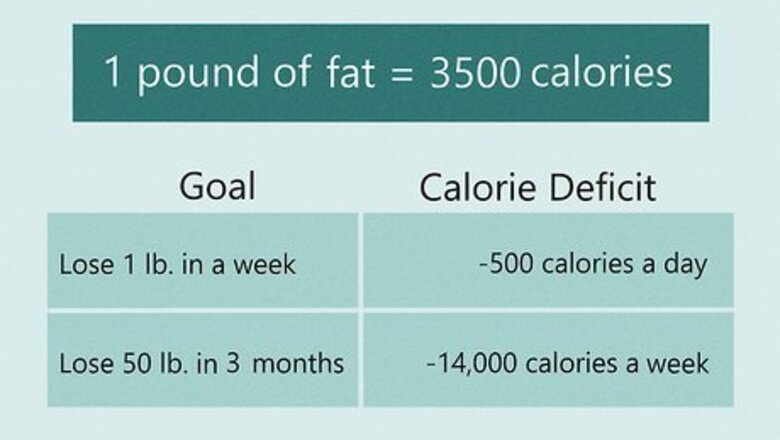
views
Effective Weight Loss Plan

Reduce your daily calorie intake by about 500. To lose one pound a week, you need to create a calorie deficit of about 500 a day, or 3,500 a week. To lose 50 pounds in three months, you will need to create a weekly calorie deficit of at least 14,000 calories, in order to lose about four pounds a week. That means you will need to create a 2,000 calorie daily deficit. In terms of pounds, losing 50 pounds in 3 months translates into losing 16 pounds each month (For 3 months) or losing 4.17 pounds each week (For 12 weeks).
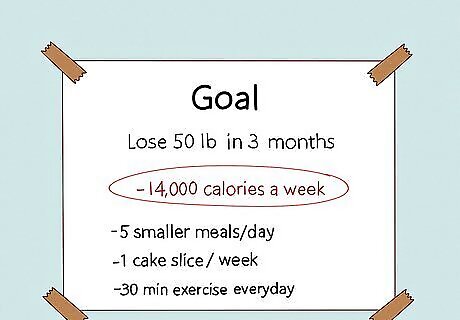
Create a plan. The very first thing you need is a diet and fitness plan. Without it, you may not be able to track your weight loss progress. The plan you come up with should be: Specific and measurable: This means that your weight loss plan should be personalized (Specific). Everyone has a different physique, eating habits and limits to physical exertion. This is why your weight loss plan should be focused and personalized according to your weight loss and fitness needs. Time framed and broken into milestones: Break down your ultimate goal into smaller milestones and track them over time to make sure you are on the right path. A weekly breakdown is recommended.
Finding the Right Diet

Rethink the way you eat. Try your best to eat small meals throughout the day rather than eating three big meals. Eating small meals throughout the day will help you keep your metabolism more active and prevent hunger. Try your best to eat five meals, each around 300 calories. During each meal, try to eat one protein-rich item, a fruit or some vegetables, and one starchy carb (rice, pasta, bread, small potato, etc). This will keep your meals balanced.
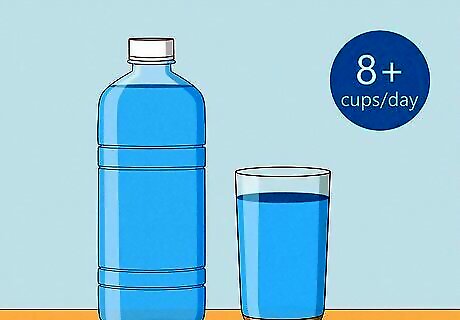
Drink lots of water. Drink eight or ideally more cups of plain water a day to keep yourself well-hydrated and flush out water weight. Believe it or not, your body will hold on to water if you do not drink enough water. So, just drink lots of water and your body will stop holding on to water weight.
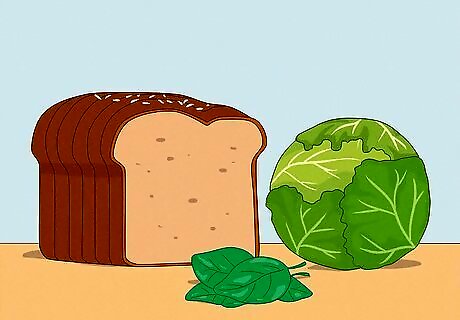
Aim at large volume foods with fewer calories such as raw vegetables and whole foods. These foods are guaranteed to keep you fuller for longer and you consume fewer calories in doing so. Green leafy vegetables will be your best weight loss companion.

Avoid processed, calorie-dense foods. Big examples include fast foods, processed canned products, desserts and foods with a high proportion of saturated fats or/and simple sugars. These foods pack up a whole lot of calories in a small serving.
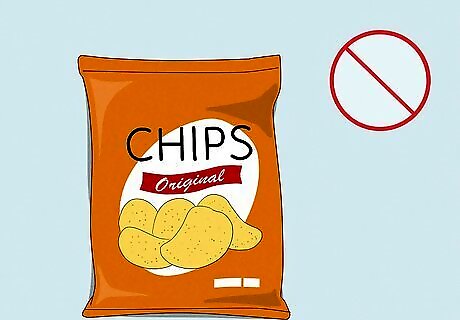
Avoid 'snacks'. Unhealthy snacks can upset your daily target calories when you are trying to lose weight. If you are a person who eats a lot of junk food, or drinks a lot of soda or alcohol, you will need to get rid of these diet-sabotaging habits. These foods and drinks contain a lot of empty calories, and will not nourish your body in a healthy way. So cut them out of your diet completely, and try to incorporate more whole foods into your diet rather than processed junk. Rather than munching on some chips, stock up on your favorite fruits and vegetables to snack on when you get hungry.
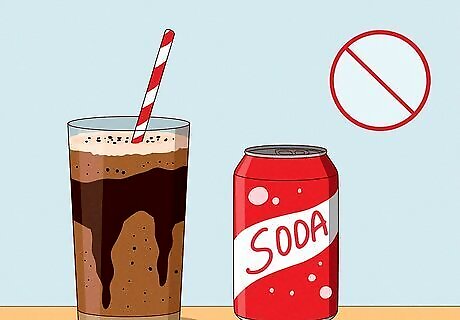
Stop drinking your calories. Soft drinks, smoothies and all beverages with sugar are off the table. Learn to cut back on your calories by restricting calorie dense drinks. Try to go for plain water, unsweetened lemonade, black coffee (Or with skimmed milk).
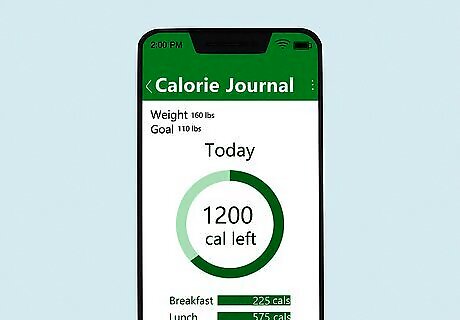
Keep a food journal, where you note down everything you eat through the day and add up the total calories. The most convenient way to keep a food journal is by using apps on your phone; there are a multitude of apps both paid and free that let you key in the foods you eat and which automatically display the calorie counts of your meals. Be sure to be diligent with your tracking, as you may overeat if you are lax with tracking.
Exercising

Up your exercise routine. Try to shoot for 5 - 7 hours of exercise per week to achieve a weekly weight loss of around 4 pounds. Each session (An hour long) should burn around 400 - 600 calories. The type of exercise may vary your results but cardiovascular training is a must as it is a great calorie burner.
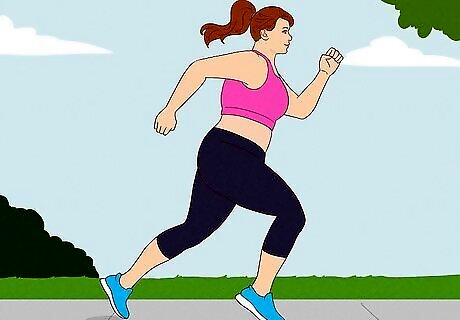
Create a cardio workout. Cardio exercises are exercises that elevate your heart rate and increase blood circulation throughout your body. Examples of cardio exercises are running, cycling, using the elliptical machine, and swimming. You will need to work out to burn around 1,500 calories a day if you are to reach your goal of losing at least 4 pounds a week. If you only have two hours to work out, then you will have to do higher intensity exercises that burn at least 750 to 800 calories each hour. Examples of high intensity workouts include spinning, high intensity Zumba, high intensity interval exercises, intense kickboxing, and running at higher speeds. If you feel like your fitness level might not allow you to jump into extensive cardio workouts, you can start with lower impact exercises such as swimming, brisk walking (4 to 5 mph (6.4 to 8.0 km/h) pace), low impact aerobics, and so on, but do them three hours per day instead of two.

Do weight training. While doing cardio is great for a big calorie burn, it does have its drawbacks. Doing a lot of cardio can cause you to lose lean muscle mass instead of just fat, which is something that you do not want. You need lean muscle to keep your metabolism at optimum levels and also give you a better looking, toned body. To maintain your muscle despite the intense cardio you will be doing, incorporate moderate weight training three times a week. You can use resistance machines at the gym, or simply work out with dumbbells at home. While strength training will not burn as many calories as cardio, it is very important to build muscle and thus boost your metabolism.
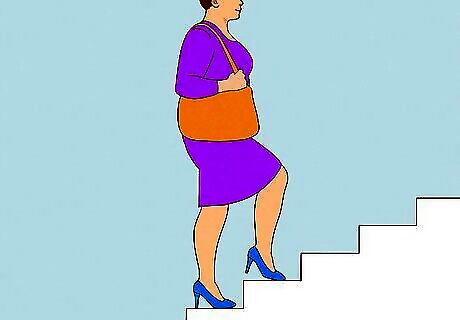
Try to make small active changes in your daily routine. Take the stairs, walk your dog, play with your kids; simple changes like these may not seem much but they make a big difference in the bigger picture and help you move closer to your goal of 50 pounds in 3 months.















Comments
0 comment